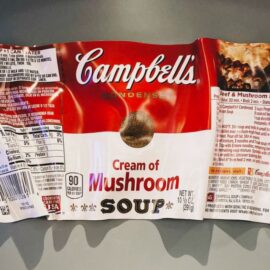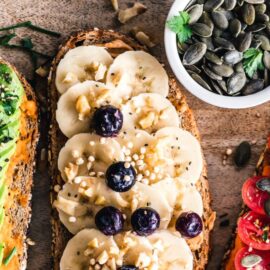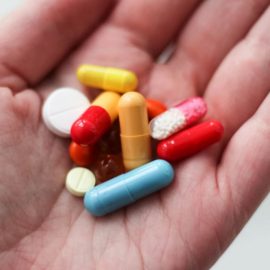
How much protein should you eat? What about carbs and fats? When is fasting a good idea?
According to Dr. Peter Attia, diet is an important factor for your physical and mental capabilities in old age. Normal metabolic function is essential if you want to avoid deadly chronic diseases, and how you eat has an impact on your metabolism.
Continue reading to get Attia’s insights on protein, carbs, fats, and fasting.
Dr. Peter Attia on Diet
According to Dr. Peter Attia, diet choices should depend on each unique body. He contends that there’s no diet that’s universally the “healthiest” for everyone. Everyone’s body metabolizes food differently, so the exact same diet might help one person and harm another.
(Shortform note: Individuals’ widely varying metabolic reactions to the same food have cast doubt on countless widely accepted conclusions from nutritional research. Traditionally, studies have compared an experimental group, who all change their diet in the same way, to a control group whose diet stays the same. However, this setup doesn’t account for differences between the two groups’ metabolisms—even if the groups are randomly selected, they won’t always be identical samples of the population. Instead, some researchers are now running a different kind of study: one in which individual participants stick with one diet for several months, then swap to another. This allows researchers to study the effects of different diets on the same metabolism.)
Although there’s no universally optimal diet, Attia offers broad dietary advice that would improve the health of most people. In modern times, many follow what’s called the Standard American Diet, which is heavy in processed, sugary foods. Consequently, they consume too many calories (which contributes to metabolic dysfunction), yet they still don’t get enough of some key nutrients (especially protein).
(Shortform note: Although experts call it the Standard American Diet (SAD), this unhealthy eating pattern isn’t unique to America. One study found that many European countries, including Sweden, France, and Germany, consume the SAD’s processed foods at a comparable rate to the United States. Additionally, many countries in the Eastern Hemisphere have shifted their diet toward the SAD in recent years. This includes India, where instances of diabetes tripled from 1995 to 2014, and China, where rates of obesity quadrupled between 1995 and 2019.)
Attia asserts that most people should do the following:
- Eat more protein
- Eat fewer carbohydrates
- Complete their diet with fats
- Fast only if they have metabolic dysfunction
Finally, as a side note, Attia states that, as long as your metabolism is relatively healthy, practicing the ideal exercise routine is more important than consuming the ideal diet. Although fixing your diet is essential if you’re suffering from intense insulin resistance, perfecting your diet yields far fewer health benefits than perfecting your exercise routine.
(Shortform note: This idea contradicts some common wisdom in the field of health and fitness. Some health experts cite the “80/20 Rule”: If you want to lose weight, you need to retain fewer calories. Avoid 80% of those calories by eating less, and burn the other 20% through exercise. This advice disregards the fact that exercise helps you lose weight primarily by improving your metabolism, not by burning calories.)
Most People Should Eat More Protein
According to Attia, most people consume far less protein than their body needs for optimal health. The body uses protein for countless essential tasks, converting it into important enzymes, hormones, and muscle mass. (Building muscle is necessary to increase health and longevity.)
Although US government agencies recommend consuming 0.8 grams of protein per kilogram of body weight a day, Attia asserts that most people need at least double that—1.6 grams per kilogram. If you’re active and trying to gain muscle (as almost everyone should be), Attia recommends 2.2 grams per kilogram (or 1 gram per pound of body weight) of protein. Whereas excess calories from glucose are sometimes stored in unhealthy ways, your kidneys will filter out any excess protein and you’ll excrete it through urine. Therefore, it’s very difficult to eat too much protein—3.7 grams per kilogram of body weight will strain your kidneys, but the vast majority of people never come close to consuming that much.
Most People Should Eat Fewer Carbs
Most people consume too many carbohydrates, asserts Attia. Although the body uses carbohydrates as its main source of energy, when you consume too many, they raise blood glucose and trigger the overproduction of insulin. This is because your body converts carbohydrates into glucose more readily than any other food group.
That said, Attia notes that carbohydrates in moderation are healthy—and they’re healthier for some people more than others. For instance, although it would be atypical, you may find that cutting carbohydrates out of your diet doesn’t help you burn fat or reduce your blood sugar.
The only way to know for sure how your unique metabolism processes carbohydrates is to experiment with your diet until you’ve found one that helps you reach your health goals.
To help you do this, Attia recommends using a continuous glucose monitor (CGM), an implantable device that allows you to stay aware of your blood sugar levels at all times. Spikes in blood glucose after you’ve eaten something high in carbohydrates indicate times when your body will produce extra insulin in response. By observing what quantities of specific foods cause your glucose (and insulin) to spike, you can learn to avoid or reduce your intake of those foods in the future. Over time, this helps you keep your blood glucose low and avoid insulin resistance.
Complete Your Diet With Fats
When you reduce your consumption of carbohydrates and eat the necessary amount of protein, the rest of your diet will primarily be made of fats. This is perfectly healthy, according to Attia. Generally speaking, foods high in monounsaturated fats (like olive oil) are healthier than foods high in polyunsaturated fats (like nuts and fish) or foods high in saturated fats (like beef and butter).
Attia estimates based on anecdotal evidence that one-third to one-half of people react badly to a diet heavy in saturated fats—it causes them to produce significantly more LDLs and other unhealthy forms of cholesterol, increasing their likelihood of heart disease. That said, for those whose bodies can process it well, saturated fat is perfectly healthy to eat.
Fasting Is Sometimes Good for You (But Usually Bad)
Attia notes that, in recent years, fasting—restricting your calorie intake for fixed periods of time—has become an incredibly popular health trend. But, is it good or bad for you?
Fasting is exactly what some people need. If you find fasting easier than trying to follow strict dietary rules, it can help you reduce your calorie intake to a healthy level. Additionally, within three days of fasting, you’ll trigger starvation ketosis—your body burns fat stores to keep you from feeling hungry, and your cells recycle stray waste materials into functional parts in a process called autophagy.
However, Attia argues that, in many cases, fasting can be detrimental to your health. It’s nearly impossible to eat enough protein to support your body during a fast, so you’re likely to lose muscle (which is very unhealthy). For most people, this is too great of a sacrifice to make. Fast only if you have metabolic dysfunction and desperately need to burn fat to avoid chronic disease.
Exercise: Assess Your Diet Habits
Healthy nutritional habits are a foundational component of a healthy, longevity-focused lifestyle. Assess your current diet, and brainstorm how you could improve it.
- Describe your current diet—what meals do you eat on a typical day? Estimating roughly, would you say you eat too many or too few carbohydrates, proteins, and fats? (For example, you may typically eat a bowl of cereal in the morning, a sub sandwich for lunch, and a cream-based pasta for dinner. If so, you could presume that you eat too many carbohydrates, not enough protein, and a healthy amount of fats.)
- What’s one change you could make to improve your diet? (For example, you could replace your carb-heavy breakfast cereal with a protein-heavy omelet and some Greek yogurt.)






